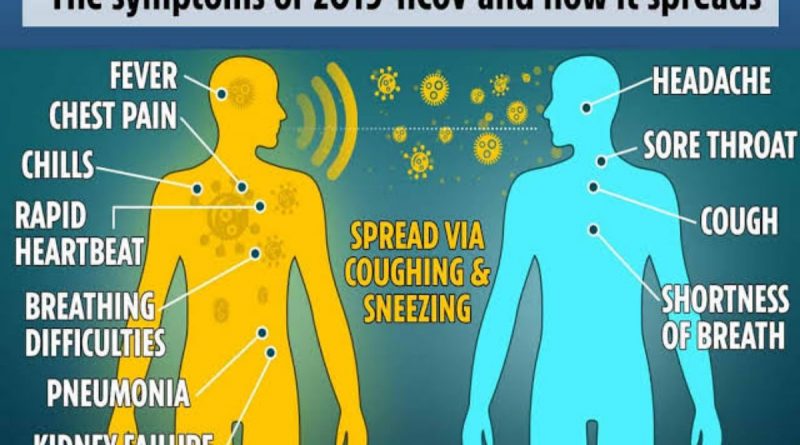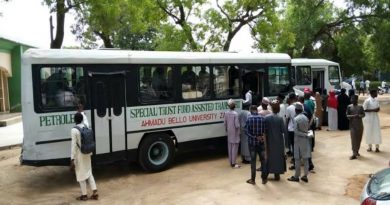Important Protective Tips Against Coronavirus (2019-nCoV)
China has been battling the outbreak of pneumonia-like illnesses, first detected in the central city of Wuhan in Dec. 2019, for over a month. The spate of illnesses is caused by a novel coronavirus, dubbed 2019-nCoV, which has now infected over 28,000 Chinese citizens and claimed more than 560 lives.
The illness was first reported to the World Health Organization on New Year’s Eve and in the intervening month linked to a family of viruses known as “coronaviruses,” the same family responsible for SARS and Middle East respiratory syndrome, as well as some cases of the common cold.
What is a coronavirus?
Coronaviruses belong to a family known as Coronaviridae, and under an electron microscope they look like spiked rings. They’re named for these spikes, which form a halo or crown around their viral envelope.
Coronaviruses contain a strand of RNA within the envelope and, as a virus, can’t reproduce without getting inside living cells and hijacking their machinery. The spikes on the viral envelope help coronaviruses bind to cells, which gives them a way in, like blasting the door open with C4.
Once inside, they turn the cell into a virus factory, using its molecular conveyor belt to produce more viruses, which are then shipped out of the cell. The virus progeny infect other cells and the cycle starts anew.
Important WHO Protective Tips
Wash your hands frequently
Wash your hands frequently with an alcohol-based hand rub or soap and water.
Why? Washing your hands with an alcohol-based hand rub or soap and water kills the virus if it is on your hands.
Practice respiratory hygiene
When coughing and sneezing, cover mouth and nose with flexed elbow or tissue – discard tissue immediately into a closed bin and clean your hands with alcohol-based hand rub or soap and water.
Why? Covering your mouth and nose when coughing and sneezing prevent the spread of germs and viruses. If you sneeze or cough into your hands, you may contaminate objects or people that you touch.
Maintain social distancing
Maintain at least 1 metre (3 feet) distance between yourself and other people, particularly those who are coughing, sneezing and have a fever.
Why? When someone who is infected with a respiratory disease, like 2019-nCoV, coughs or sneezes they project small droplets containing the virus. If you are too close, you can breathe in the virus.
Avoid touching eyes, nose and mouth
Why? Hands touch many surfaces which can be contaminated with the virus. If you touch your eyes, nose or mouth with your contaminated hands, you can transfer the virus from the surface to yourself.
If you have fever, cough and difficulty breathing, seek medical care early
Tell your health care provider if you have traveled in an area in China where 2019-nCoV has been reported, or if you have been in close contact with someone with who has traveled from China and has respiratory symptoms.
Why? Whenever you have fever, cough and difficulty breathing it’s important to seek medical attention promptly as this may be due to a respiratory infection or other serious condition. Respiratory symptoms with fever can have a range of causes, and depending on your personal travel history and circumstances, 2019-nCoV could be one of them.
If you have mild respiratory symptoms and no travel history to or within China
If you have mild respiratory symptoms and no travel history to or within China, carefully practice basic respiratory and hand hygiene and stay home until you are recovered, if possible.
As a general precaution, practice general hygiene measures when visiting live animal markets, wet markets or animal product markets
Ensure regular hand washing with soap and potable water after touching animals and animal products; avoid touching eyes, nose or mouth with hands; and avoid contact with sick animals or spoiled animal products. Strictly avoid any contact with other animals in the market (e.g., stray cats and dogs, rodents, birds, bats). Avoid contact with potentially contaminated animal waste or fluids on the soil or structures of shops and market facilities.
Avoid consumption of raw or undercooked animal products
Handle raw meat, milk or animal organs with care, to avoid cross-contamination with uncooked foods, as per good food safety practices.
Is it safe to receive a letter or a package from China?
Yes, it is safe. People receiving packages from China are not at risk of contracting the new coronavirus. From previous analysis, we know coronaviruses do not survive long on objects, such as letters or packages
Can pets at home spread the new coronavirus (2019-nCoV)?
At present, there is no evidence that companion animals/pets such as dogs or cats can be infected with the new coronavirus. However, it is always a good idea to wash your hands with soap and water after contact with pets. This protects you against various common bacteria such as E.coli and Salmonella that can pass between pets and humans.
Can eating garlic help prevent infection with the new coronavirus?
Garlic is a healthy food that may have some antimicrobial properties. However, there is no evidence from the current outbreak that eating garlic has protected people from the new coronavirus.
Protect yourself and others from getting sick




Practice food safety



Stay healthy while travelling





CLICK HERE TO VISIT THE WHO EMERGENCY PAGE FOR MORE UPDATES








